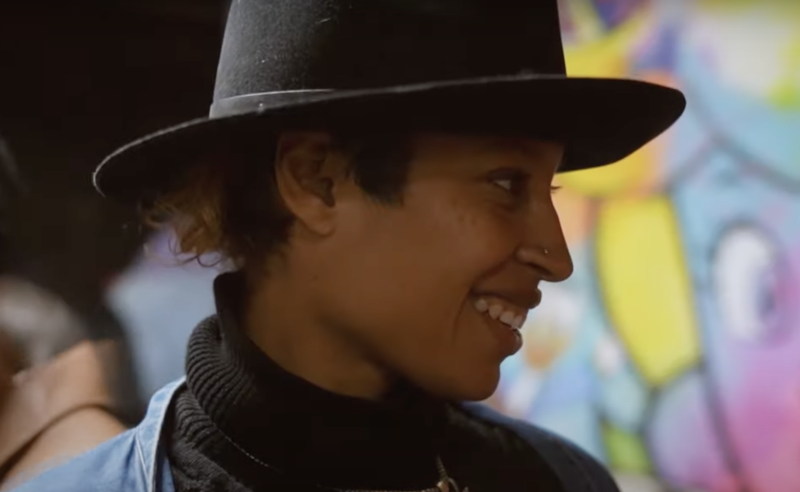“I’m comfortable being a woman who likes women. I live my life as a man, yes, but the reality does not change. You’re born a woman and that’s how you’re going to die.”
So said Marquise Vilsón, one of the subjects of 2005 documentary The Aggressives. The film captured the lives of a group of genderqueer people of color living in New York City between 1997 and 2003. A quarter century on, Vilson’s starkly resigned statement feels lightyears away from where he is today — a successful actor, mentor and activist who is, unquestionably, a man.
Given the strides forward that Vilsón has publicly made over the years, it’s no wonder Aggressives director Daniel Peddle felt the need to check in with some of the other subjects of the film. In 2018, he reconnected with four of the original cast: Octavio Sanders, Trevon Haynes, Kisha Batista and Chin Tsui. He spent the next five years documenting their continuing evolutions, as well as capturing Gen Z perspectives on how these “trancestors” have positively impacted the lives of queer youth now. The result is Paramount+ and Showtime documentary, Beyond the Aggressives: 25 Years Later.
In many ways, reconnecting with these subjects as older, more established adults is a relief, and issues of crime, racism and poverty are not as present here as they were in The Aggressives. Kisha in particular appears to be living her best life: one full of love, joy, art and motorcycles. She is the philosophical heart of the movie and lights up the screen every time she’s on it — a quality that’s allowed her to snag roles on TV shows like Orange is the New Black, Law & Order and Manifest.



